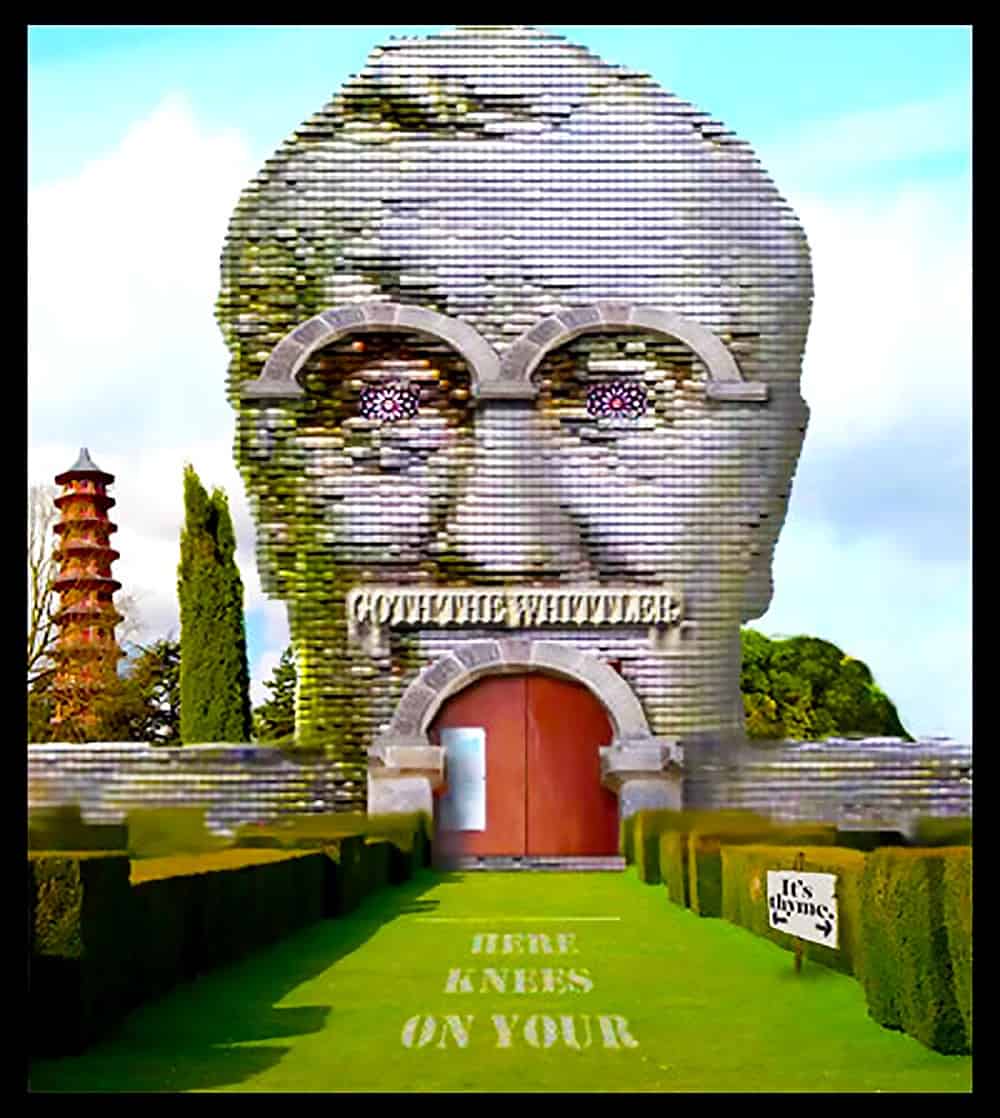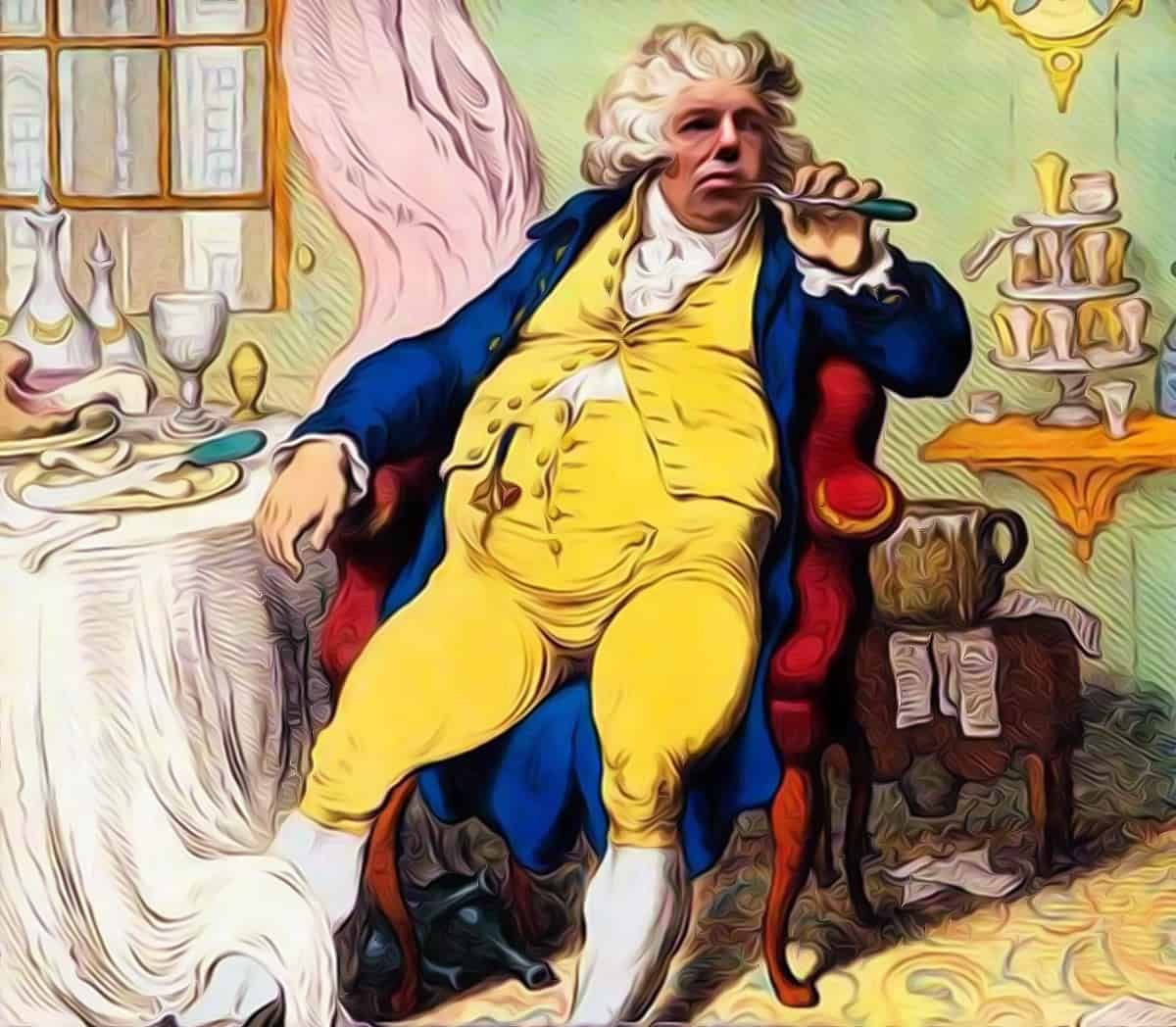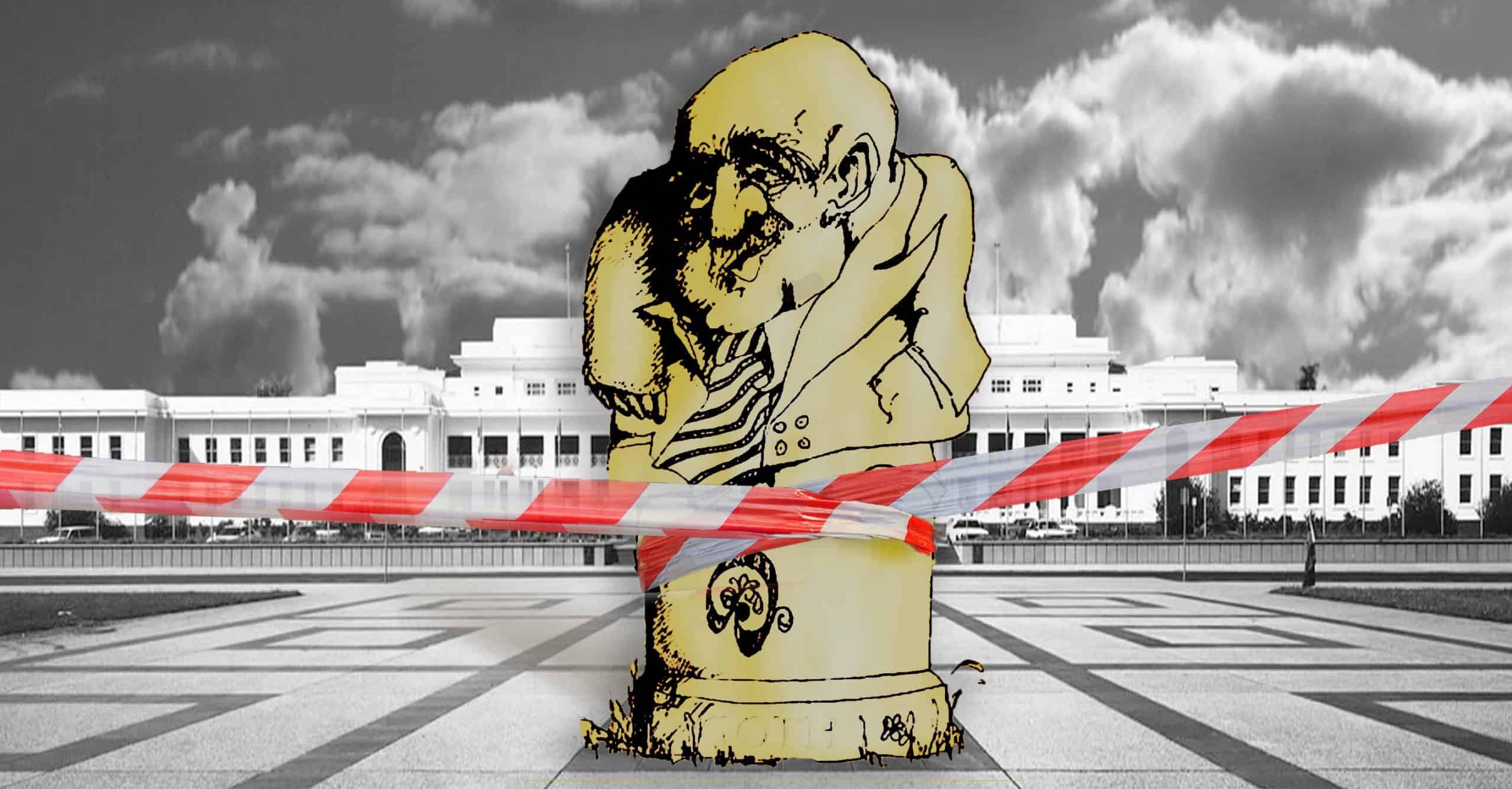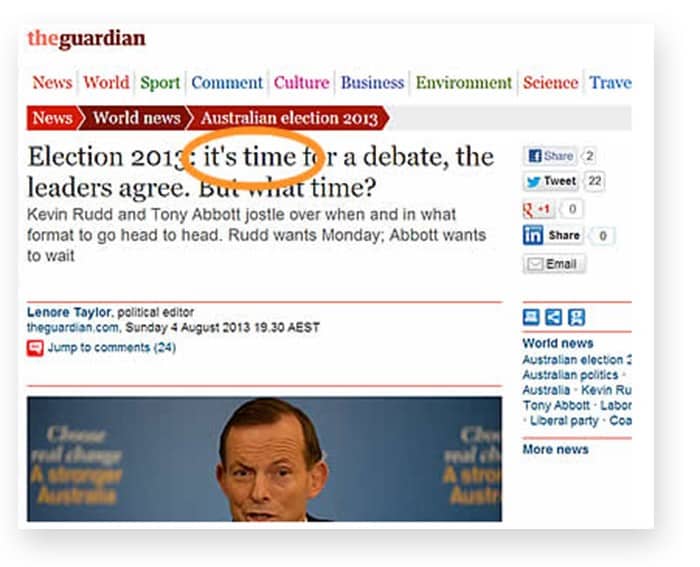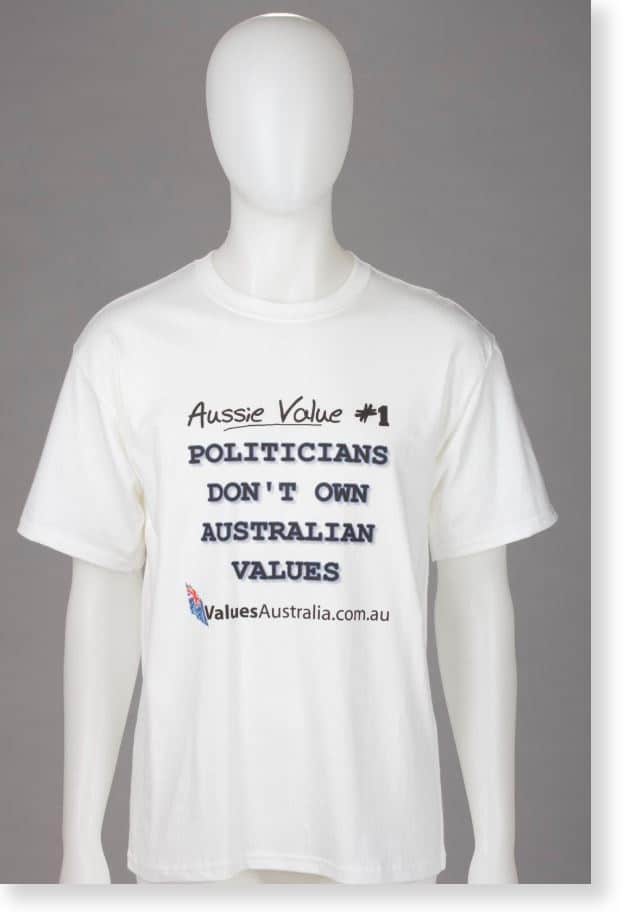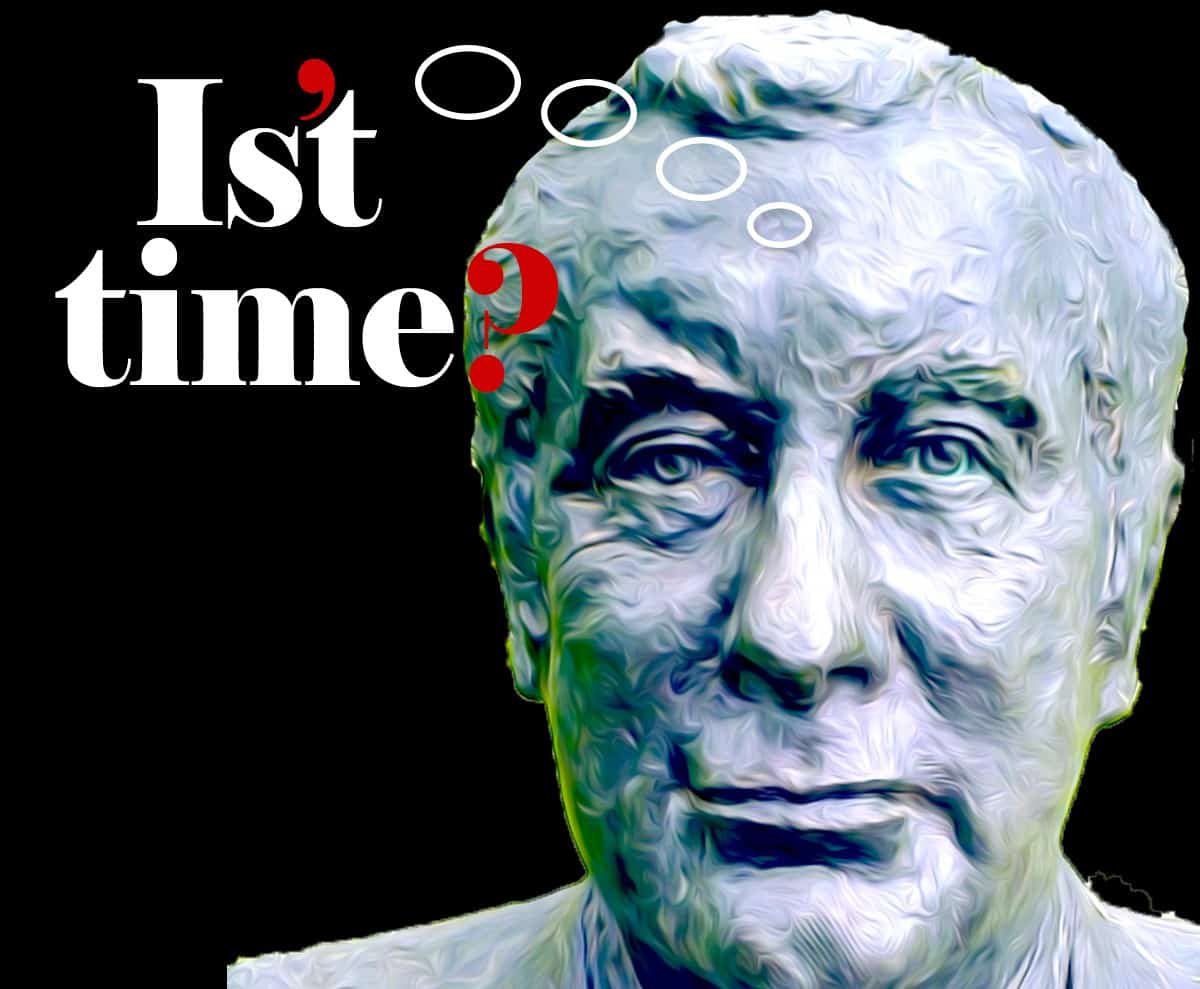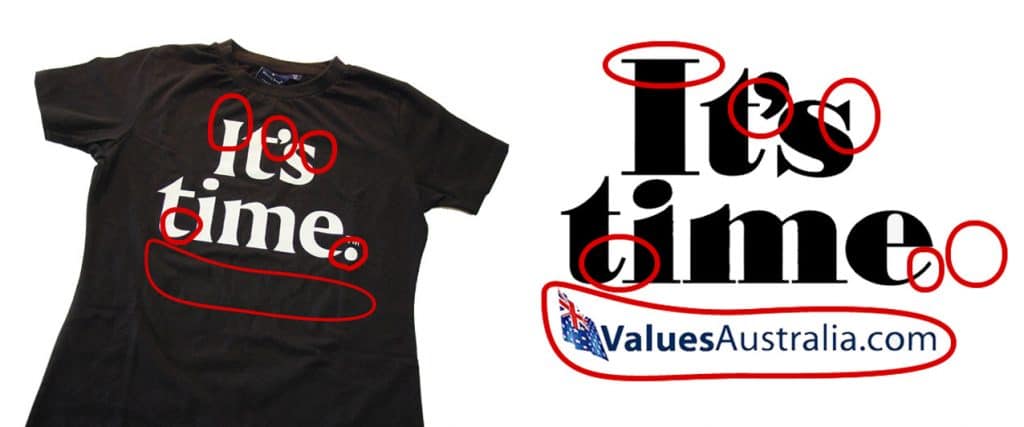Or Worse – a Catholic Priest
Previously on Moron in a Hurry :
Sir Roger, strapped to the rack by the Madam Intimidatrix of the Hooded Brethren of the Gruff Wiblam Edifice, shouted that “Freedom is a state of mind”, wondering where he’d heard it before — was it Walter Mosley? Or was it Corporate Avenger? — whereupon his bonds evaporated and the spirit of Wiblam was upon him and possessed his tongue. His eyes flashed and his balls grew large. He spoke of his astonishment. He spoke of facts and moral truths, of the Law and its unhappy servants, of dog warmers, mouse mats and g-strings.
Sir Roger now invoked the enchanted phrase “It’s Time” and the wizards who possess it. And he e-spake these words unto the Hooded Brethren:
Ownership of the phrase
Gough Whitlam did not own the phrase in the commercial sense.
At the time that the phrase gained popularity he did not personally pay for the slogan, nor the campaign as far as one is aware. Intellectual property typically belongs to the person who creates it, or to the legal entity which commissions the work.
The campaign was created in 1972 by McCann Erickson who were commissioned by the Labor Party.
Ironically enough “It’s Time” might be seen by a sharp-eyed lawyer on the make as an appropriation of Menzies’ 1949 slogan, “It’s Time for a Change”. Would the Liberal Party have had a case for trademark infringement or for passing off? I suppose Menzies ought to have had greater foresight and trademarked the phrase.
Despite the slogan having a certain association with Whitlam and with images of Whitlam during the 1972 campaign (as it does also with numerous now-faded TV personalities) – again, it was The Australian Labor Party that campaigned under the slogan, not just Gough.
It was the Labor slogan, not the Whitlam slogan.
More than this, a majority of Australian electors adopted the slogan as their own, voted Labor in 1972 and won. We won.
It was a time of excitement and hope and anticipation. The Labor victory changed Australia overnight and so Australians who voted Labor then felt “it’s time” was their time.
And they still do.
Gough was Sir Roger’s hero too, as he told David Attenborough one day (or was it the other way around?) and he even managed to touch the hem of Gough’s garment once, before Gough imperiously brushed him off.
Yes, the Institute may have a legal right to the term but it cannot honestly assert moral ownership of the phrase which belongs to the Australian people, or at least those who are ancient enough to remember those heady days 41 years ago.
The appropriation (or acquisition) of the phrase by the Whitlam Institute seems in Sir Roger’s personal view opportunistic and merely commercial and any assertion of moral ownership groundless.
You have expressed a view that universities have not been “politicised”.
Are you serious? Where have you been? And even if you were right what is not debatable is that they have certainly become highly commercialised, which is perhaps worse, especially from the point of view of the values which Gough always represented.
Which is why we are having this conversation.
“We want to give a new life and a new meaning in this new nation to the touchstone of modern democracy — to liberty, equality, fraternity.”
– Gough Whitlam, ALP Policy Speech, 13 November 1972
Sir Roger is in his way a student of the Enlightenment which led directly to liberté, egalité, fraternité and la Déclaration des droits de l’homme et du citoyen. And it would in Sir Roger’s view be a travesty and an insult to Whitlam’s legacy if lawyers on his behalf were to trample all over what he actually stood for, what he held so dear, what he really meant to us and which he so successfully shared as his vision for this country, for its people and their democracy – just because it was “the law”.
Genericisation
One is clear that the Institute is in proud possession of carefully guarded forms saying that it owns a Trade Mark. Those pieces of paper give the Institute a legal stick.
People, however, use these two words together in all sorts of contexts all the time. People have appropriated the term as their own ever since 1972. It is used everywhere by all sorts of people.
One could understand if the whole purpose of this exercise by The Magnificent Whitlam Institute may be to run a campaign to avoid genericisation by asserting its trademark. And such a campaign might focus on the easier targets.
But it was probably already too late for that as early as 1972.
Your pieces of legal paper if taken literally would mean people may conceivably inadvertently infringe your trademark privately or in public using those words.
The idea that the Institute has a right to be the only “legal person” to use those words together in all the Classes you have trademarked is a nonsense, a mockery, an impossibility.
Any attempt the Institute might make to assert its trademark on a large scale would be in danger of discovery that it is a generic term and you might risk losing the trademark protection in any case.
To be clear, your trademarks do not discriminate or allow discretion.
They make it an infringement to use the two words together in any and all of the contexts which are covered.
You are honour bound to pursue all perceived infringements as you have Values Australia. Anything else would be unethical.
A newspaper headline, for example, or a recorded political speech could be construed to fall under the trademark jurisdiction.
You could conceivably pull a teacher out of a classroom for writing those words on the whiteboard at the start of a class, “branding” the lesson.
You could conceivably take IBM (for argument’s sake) to court because the office girl created signs for a change management seminar she had decided to call “IT’S TIME”. You would be entitled to make a claim if you felt like it. In fact, since you have done it here, you are bound to do it there, and to seek out every possible instance where it might occur.
You can see the total absurdity. (Or perhaps you can’t. That would be sad.)
And yet you were not satisfied with one set of absurdities in 2004. You went out and bought four more in 2011.
.
Freedom of speech
What is worse is that the right of a person to freedom of speech in a political context was derived from Sections 7 and 24 of the Australian Constitution by the High Court in 1992 and 1994 and in particular in Lange v Australian Broadcasting Corporation (1997).
Even the Immigration Department on its website assures potential citizens that there are “five fundamental freedoms”.
Number one on their list is “freedom of speech”.
“Australians are free, within the bounds of the law, to say or write what we think privately or publicly, about the government, or about any topic. We do not censor the media and may criticise the government without fear of arrest.”
One doesn’t wish to make too much of this but after all it is the website of an Australian Government department. It has been there for many years. It must have legal, if not legislative, standing because a person would be entitled to rely on this advice to inform his actions. If it does not have force then it is misrepresentation and a person could claim damages.
A case might be made that restricting the use of “it’s time” in the political context, trademark notwithstanding, is a restriction on or infringement of that implied right.
I don’t suppose you want to test that and Sir Roger does not have the means.
On a more personal note.
Sir Roger was offended that “you”, or whoever actually wrote the letter, employed that formal and threatening presumption-of-guilt language which seems to the clean-living and unwary to accuse one of all manner of the vilest of premeditated and vicious crimes and to suggest that the recipient is the lowest bastard in the world if not a baby-eater – or worse, a catholic priest – when you could as easily have written,
“Dear Sir, you may not have realised that [blah blah etc. etc.] and though your intentions may have been honourable, we would like you to not do that any more, please. We’d rather not, for both our sakes, have to ask you again if you don’t mind. Let’s know if you object. Kind regards Helen (via Allison).”
Sir Roger finds that writing to decent, good, generous Australians in the arrogant way you have is offensive and frankly obscene.
Not everyone (thank god) is a lawyer and understands that legalese is “just the bullying way we do things around here” and that you were “just doing your job; nothing personal”.
He does, though, feel for you.
Much as you might have desperately wished you could write an understanding and thoughtful letter, you simply cannot. Your hands and pens and mind are chained to the books, the desk and the formula, to the form guides you learnt while articled, and to the form letter in which you or your office girl customised the fill-in-the-blank spaces.
For you there is only one way to write such a letter and you have no choice but to do it that way.
In this most free of countries lawyers, of all people, have no professional freedom. In your heart you might wish you could change the world for the better, the way you dreamed in the idealistic glow of youth so long ago, when you watched Boston Legal – or perhaps Perry Mason?
But the law, as you know, and perhaps discovered to your dismay (or delight, who knows?) is not about truth or justice; it is only about the law.
For all one knows you may have strong morals yourself but in your profession morality is irrelevant, except for morality which is legislated. And in that you have no say, whether you agree with it or not.
And so instead of doing what is right you must do what is legal, perhaps sitting in a room lined with soul-sucking books doing unutterably tedious, endlessly repetitive and eye-wateringly trivial things like pumping out form letters to the wicked.
Sir Roger is full of regret for any existential struggle you might have, any desire you might have to fashion meaningfulness amongst the professional restraints.
Meanwhile, Sir Roger is unfettered by such constraints. Every day is a new excitement and a new challenge and a creative opportunity to influence his world for the better and to make it a better, more loving and more humane place – much the way Gough inspired us to do and be.
And one has the constitutional right and freedom to do so.

In our next and final instalment, Sir Roger:
- makes shocking revelations of high-profile naughtiness,
- gets up-close-and-personal
- and even more up-close-and-personal with the, after all, non-intimidating one,
- asks the question he often asks himself, and knows she does:
“How would this look on the front page of the herald?”
- and drops a political bombshell!
![]()



